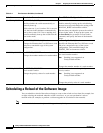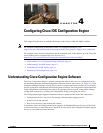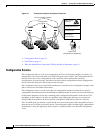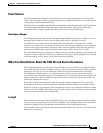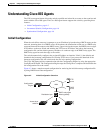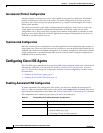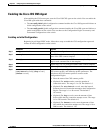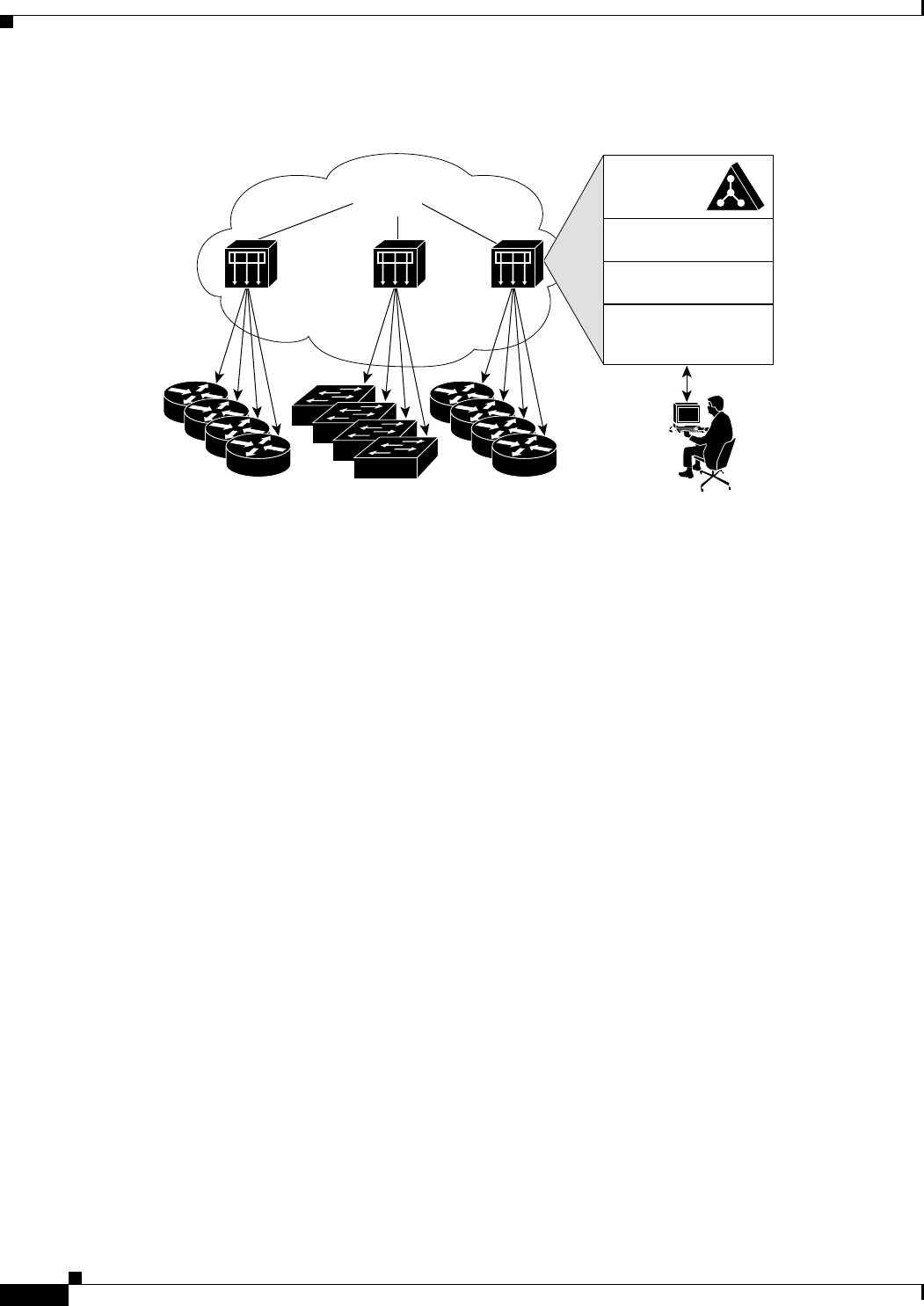
4-2
Catalyst 2960 and 2960-S Switch Software Configuration Guide
OL-8603-09
Chapter 4 Configuring Cisco IOS Configuration Engine
Understanding Cisco Configuration Engine Software
Figure 4-1 Configuration Engine Architectural Overview
• Configuration Service, page 4-2
• Event Service, page 4-3
• What You Should Know About the CNS IDs and Device Hostnames, page 4-3
Configuration Service
The Configuration Service is the core component of the Cisco Configuration Engine. It consists of a
configuration server that works with Cisco IOS CNS agents on the switch. The Configuration Service
delivers device and service configurations to the switch for initial configuration and mass
reconfiguration by logical groups. Switches receive their initial configuration from the Configuration
Service when they start up on the network for the first time.
The Configuration Service uses the CNS Event Service to send and receive configuration change events
and to send success and failure notifications.
The configuration server is a web server that uses configuration templates and the device-specific
configuration information stored in the embedded (standalone mode) or remote (server mode) directory.
Configuration templates are text files containing static configuration information in the form of CLI
commands. In the templates, variables are specified using Lightweight Directory Access Protocol
(LDAP) URLs that reference the device-specific configuration information stored in a directory.
The Cisco IOS agent can perform a syntax check on received configuration files and publish events to
show the success or failure of the syntax check. The configuration agent can either apply configurations
immediately or delay the application until receipt of a synchronization event from the configuration
server.
Configuration
engine
Service provider network
Order entry
configuration management
Data service
directory
Configuration server
Event service
Web-based
user interface
141327







